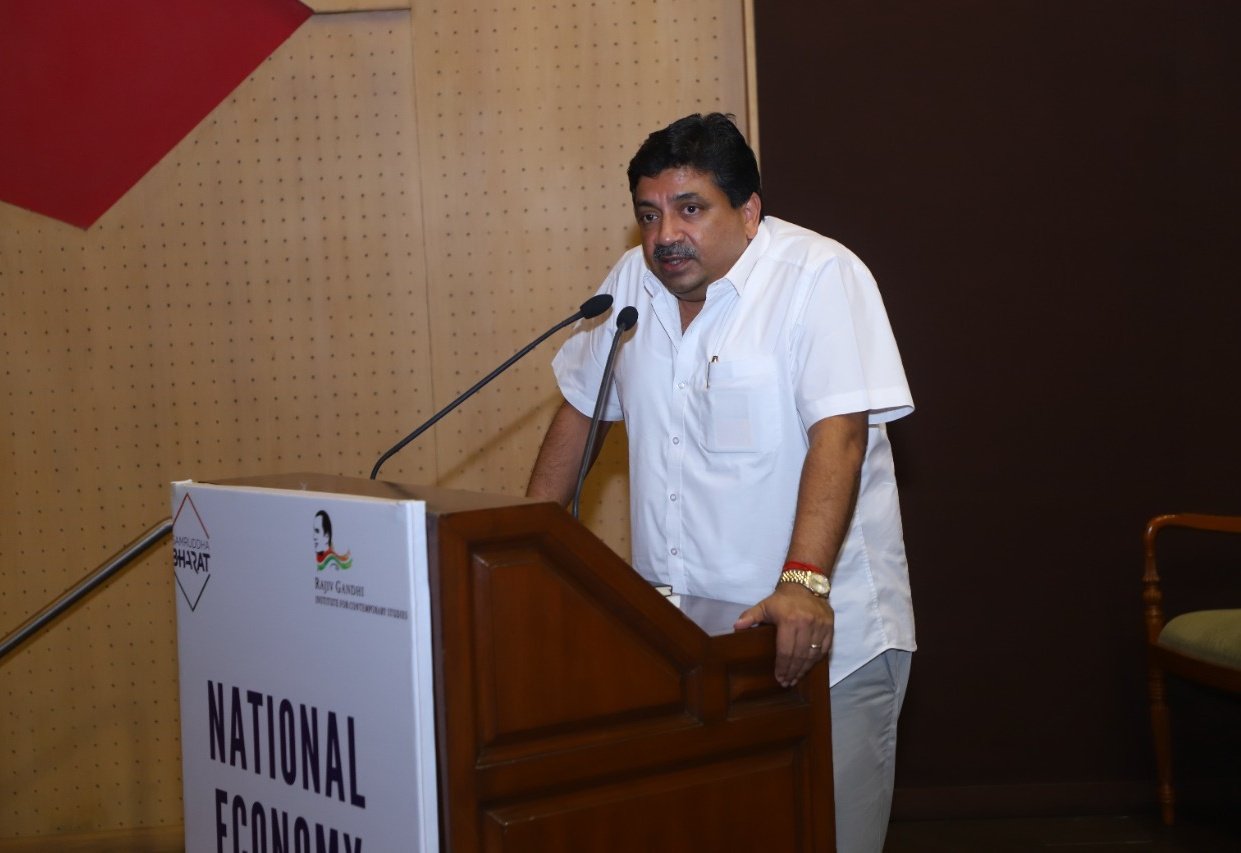PTR, in an interview to South First, said that the GST Council represented another aspect of the “colonising power” of the Centre.

Tamil Nadu Finance Minister PTR charged that the Union government runs the GST Council as a "rubber stamp". (PTR/ Twitter)
Tamil Nadu Finance Minister Dr Palanivel Thiaga Rajan, popularly known as PTR, has been one of the staunchest critics of the current structure of the Goods and Services Tax (GST) Council.
The skewed voting rights given to states in the GST Council, irrespective of the size of the state, is what he believes is one of the key flaws of the tax council, making it the equivalent of a “rubber stamp” for the Union government.
In an interview with South First, PTR was scathingly critical of the BJP-led Union government, and said that the GST Council represented another aspect of the “colonialising power” of the Centre.
“As far as the GST Council is concerned, anything good happens, the Union government takes credit; and if anything bad happens, it’s put on the GST Council,” he said while speaking about how every controversial decision taken by the Centre — such as the move to impose 5 percent GST on essential food items — is blamed on the GST Council of which every state finance minister is a part.
Explaining the “deep structural flaws” of the GST Council, PTR said that 75 percent vote is needed to pass any resolution. The Centre holds 33 percent. “That means any resolution the Centre votes against is dead automatically,” he said.
But can a resolution brought in by the Union government be rejected by states?
According to PTR, “in theory” you can vote against a central resolution and stop it. However, to do that, the states need to get 25 percent of the votes.
“But because of the one-state, one-vote formula, there is a natural skew,” said PTR, pointing to the fact that an Arunachal Pradesh, which contributes just 0.05 percent to the central kitty has the same one vote as Tamil Nadu, which contributes 12 percent.
“So all those states that are beneficiaries of the Union government’s spending automatically are going to vote for higher taxes. They pay in a little, and they get out a lot. So higher taxes benefit them,” he elaborated.
According to PTR, “The large states such as Maharashtra, Gujarat, Karnataka, Tamil Nadu, Kerala and other southern states like Andhra Pradesh — which end up paying (to the Centre) a lot more than they get — “you would expect these states to naturally want to pay lower taxes because how much ever they pay, they only get a small fraction back”.
However, the problem, he points out, is that “the BJP states don’t vote as if they are states”.
“They vote as if they are getting a diktat from the BJP command. They sacrifice their people’s interests for their party’s interests. Therefore, the odds you can get 12-13 states who are net donors… net contributors to vote against the Union is zero,” the Tamil Nadu finance minister told South First.
This is why PTR believes the Union government uses the GST Council as a “rubber stamp” or a “technical body”.
“Any hard decision, they (Centre) can put it on the council, and any easy decision they will say it is because of them, and because of their magnanimity and their great leader’s (PM Modi) vision,” he added.
PTR also spoke extensively on the sudden national debate around “freebies”. Articulating his strong views on the subject, he charged that it was “beyond hypocritical” for Prime Minister Narendra Modi to be talking about freebies as he had “flown down to Chennai from Delhi to inaugurate the Rs 25,000 per scooter scheme for women scheme by the previous AIADMK government”. The scheme was shelved by the DMK government.
PTR also questioned the need for Supreme Court to get into the debate over “freebies”, which he believes is an inane discussion, when the “Constitution hasn’t appointed the apex court as the guardian of people’s money”, and also because the court had not found time to hear cases related to “profound issues like the demonetisation, electoral bonds, Article 370”.
Watch the full interview here:

Apr 24, 2024

Apr 19, 2024

Apr 19, 2024

Apr 19, 2024

Apr 16, 2024

Apr 16, 2024